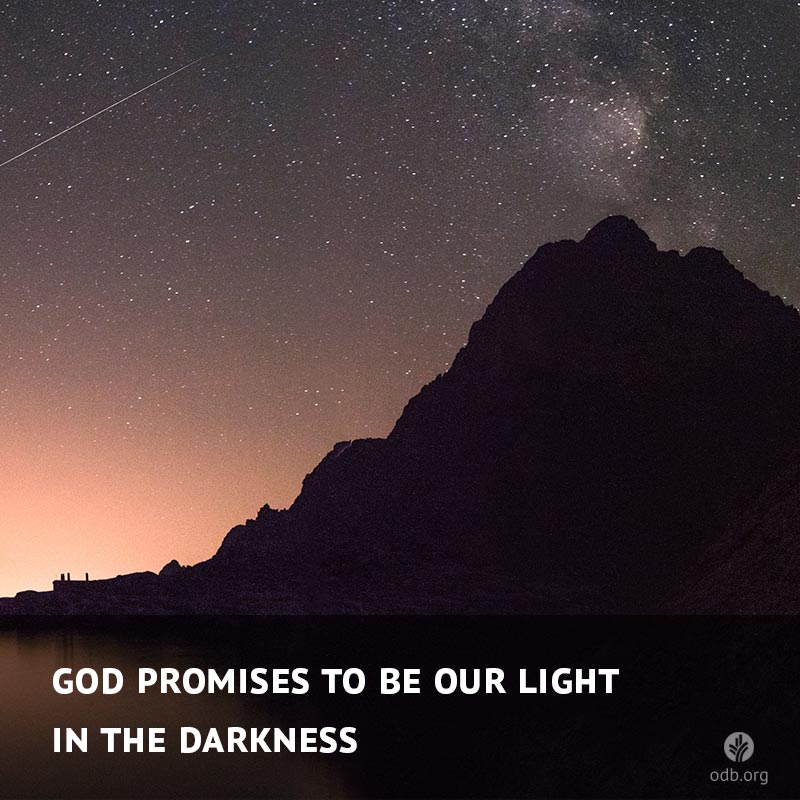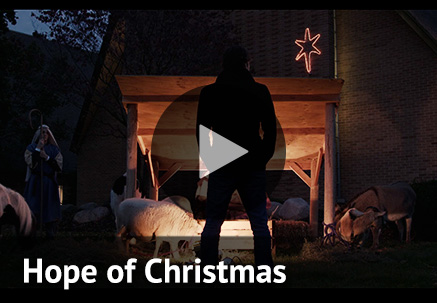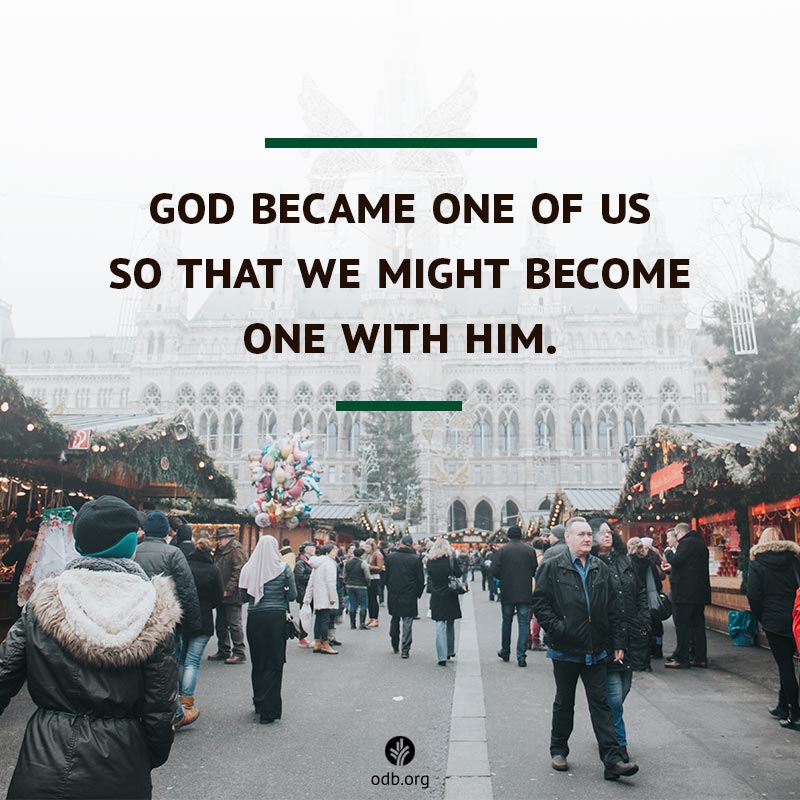
Silent Night of the Soul
Long before Joseph Mohr and Franz Gruber created the familiar carol “Silent Night,” Angelus Silesius had written:
Lo! in the silent night a child to God is born,
And all is brought again that ere was lost or lorn.
Could but thy soul, O man, become a silent night
God would be born in thee and set all things aright.
Silesius, a Polish monk, published the poem in 1657 in The Cherubic Pilgrim. During our church’s annual Christmas Eve service, the choir sang a beautiful rendition of the song titled “Could but Thy Soul Become a Silent Night.”
The twofold mystery of Christmas is that God became one of us so that we might become one with Him. Jesus suffered everything that was wrong so that we could be made right. That’s why the apostle Paul could write, “If anyone is in Christ, the new creation has come: The old has gone; the new is here! All this is from God who reconciled us to himself through Christ” (2 Cor. 5:17–18).
Whether our Christmas is filled with family and friends or empty of all we long for, we know that Jesus came to be born in us.
Ah, would thy heart but be a manger for the birth,
God would once more become a child on earth.

Home for Christmas
Christmas 1982 found me on assignment in a place many of my friends couldn’t locate on a map. Trudging from my worksite back to my room, I braced against the chill wind blowing off the bleak Black Sea. I missed home.
When I arrived at my room, I opened the door to a magical moment. My artistic roommate had completed his latest project—a nineteen-inch ceramic Christmas tree that now illuminated our darkened room with sparkling dots of color. If only for a moment, I was home again!
As Jacob fled from his brother Esau, he found himself in a strange and lonely place too. Asleep on the hard ground, he met God in a dream. And God promised Jacob a home. “I will give you and your descendants the land on which you are lying,” He told him. “All peoples on earth will be blessed through you and your offspring” (Gen. 28:13–14).
From Jacob, of course, would come the promised Messiah, the One who left His home to draw us to Himself. “I will come back and take you to be with me so that you also may be where I am,” Jesus told His disciples (John 14:3).
That December night in 1982 I sat in the darkness of my room and gazed at that Christmas tree. Perhaps inevitably I thought of the Light that entered the world to show us the way home.
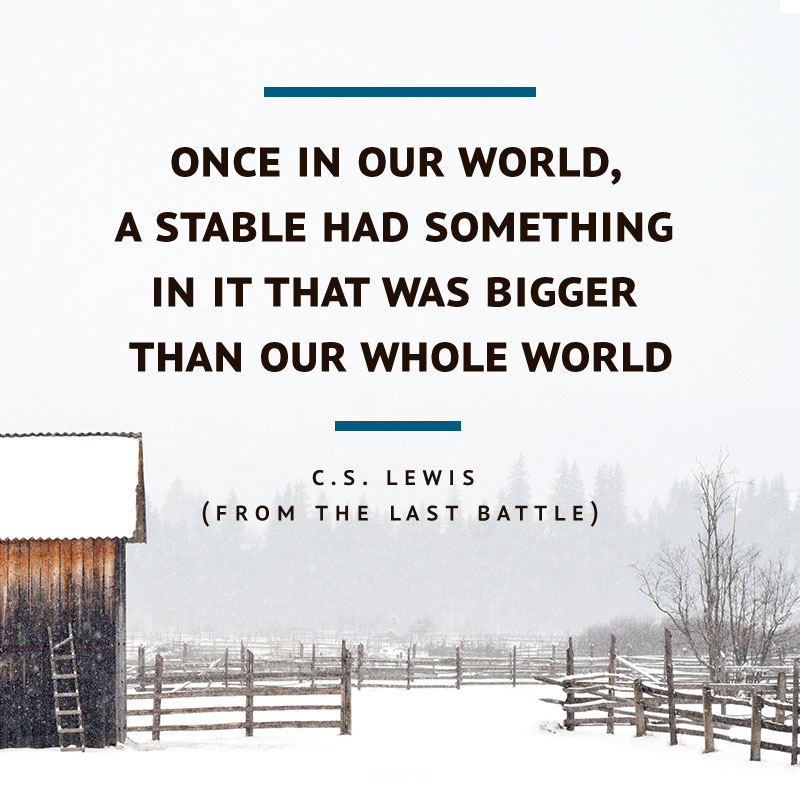
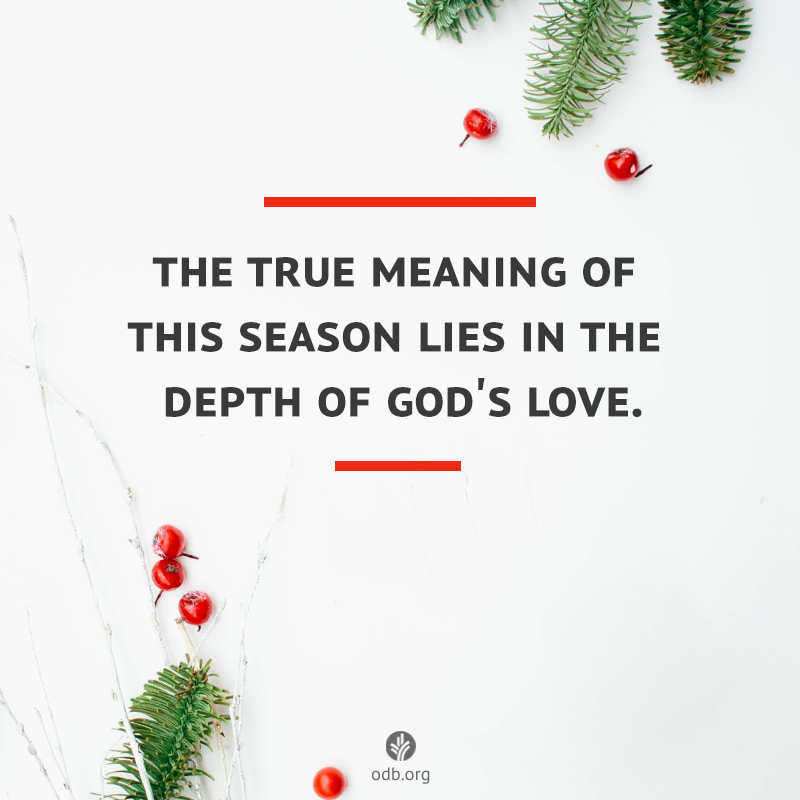
Extreme Measures
A few years ago, a friend of mine lost track of her young son while walking through a swarm of people at Union Station in Chicago. Needless to say, it was a terrifying experience. Frantically, she yelled his name and ran back up the escalator, retracing her steps in an effort to find her little boy. The minutes of separation seemed like hours, until, suddenly—thankfully—her son emerged from the crowd and ran to the safety of her arms.
Thinking of my friend who would have done anything to find her child fills me with a renewed sense of gratitude for the amazing work God did to save us. From the time God’s first image bearers—Adam and Eve—wandered off in sin, He lamented the loss of fellowship with His people. He went to great lengths to restore the relationship by sending His one and only Son “to seek and to save the lost” (Luke 19:10). Without the birth of Jesus, and without His willingness to die to pay the price for our sin and to bring us to God, we would have nothing to celebrate at Christmastime.
So this Christmas, let’s be thankful that God took extreme measures by sending Jesus to reclaim our fellowship with Him. Although we once were lost, because of Jesus we have been found!
